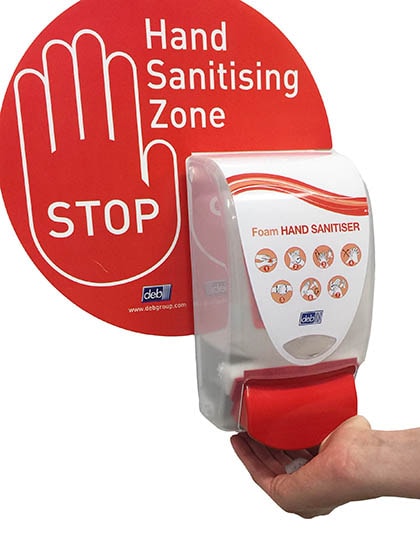Our hands are really handy – they help us do almost everything
But did you know that if we’re not careful they can also make us sick?
When we touch objects in our environment or the people we come in contact with, our hands pick up tiny microorganisms or germs.
These germs are invisible to the naked eye and we may not even know our hands are dirty.
So, without realising it we transfer these germs elsewhere by touching something or someone else.
This is how viruses such as the flu spread.
Some people, such as the very young, the elderly and those with a weak immune system are more susceptible to getting sick than others.
This is why maintaining good hand hygiene is so important.
Good hand hygiene is especially important when visiting a loved one who is unwell, whether they are at home or in hospital.
The World Health Organisation (WHO) endorses hand hygiene as being the most important measure to avoid transmission of harmful germs. You should always wash your hands with soap and water or use a waterless alcohol-based hand rub, before and after touching someone who is sick or their surroundings.
When should you wash your hands?
- Before and after preparing food
- Before eating food
- Before and after caring for someone who is sick
- Before and after treating a cut or a wound
- After using the toilet
- After changing nappies or cleaning up a child who has used the toilet
- After blowing your nose, coughing, or sneezing
- After touching an animal, animal feed, or animal waste
- After touching garbage


